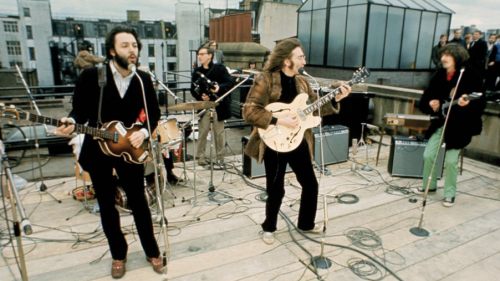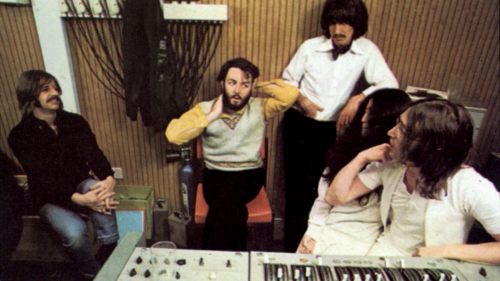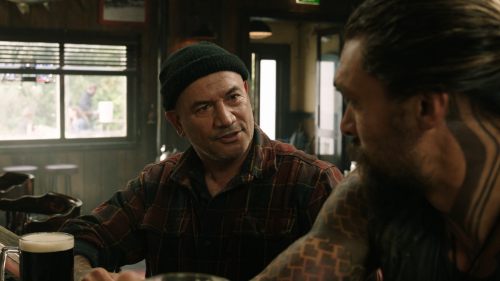Welcome To Middle-Earth: THE HOBBIT’s Bizarre Relationship With New Zealand
When you go to see The Hobbit: The Battle of the Five Armies in New Zealand, in addition to two and a half hours of CGI fight scenes, you get a five-minute short prior to the film. It’s an EPK-style fluff piece, centring on New Zealand’s role in the making of the original and prequel trilogies and featuring all the movies’ stars thanking New Zealand. Its closing title card reads “Thanks, New Zealand! (© 2014 Warner Brothers Entertainment, Inc.)”.
In a way, that short, and that title slate, is representative of the entire relationship New Zealand has with these films.
At this point, New Zealand is more or less synonymous with Middle-Earth. Wherever you go, the image of my country is of a magical land full of short, hairy people (which is only partially true). Whether being cheerfully called a “fucking hobbit” by my editor when visiting the United States, or repeatedly asked “magst du Herr der Ringe?” when visiting Germany, among the first things off people’s tongues upon learning I’m a New Zealander tends to be something to do with Tolkien.
This has been driven, of course, by Peter Jackson’s Lord of the Rings movies, a top-notch showcase of our filmmaking talent and our beautiful, cinematic landscapes.* It’s also been driven by the New Zealand government, marketing aggressively to eke every possible dollar out of those landscapes.** But few people outside New Zealand - and fewer than you’d expect inside it - truly realise the extent, weirdness, and mutually exploitative nature of the relationship Middle-Earth has with the Land of the Long White Cloud.
Kiwis have an odd relationship to their country’s artistic products that I’ve never quite been able to get behind. The attachment of New Zealanders to New Zealand artists goes beyond mere national pride, extending to the point of collective ownership of those artists by the population. The Flight of the Conchords is “our” TV show; Booker prizewinner The Luminaries is “our” novel; Lorde’s Grammys are “our” Grammys. So, too, are The Hobbit films “our” movies. Much like the subculture that has built up around loving New Zealand music simply for being from New Zealand, there’s a feeling of patriotic duty about The Hobbit. People who never go to the movies otherwise come out of the woodwork in droves for these movies. It’s an obligation.
In a country of four million people, where a not-insignificant portion of the population either directly worked on these films or knows someone who did, it’s easy to feel like they are ours. There’s a casual attainability to the film industry here, driven by its size relative to the population and its international visibility relative to the country as a whole, that makes everyone seem to think they’re a part of The Hobbit and that they share in its success. But The Hobbit is a Hollywood film, financed by Hollywood money and made to Hollywood’s demands, with any significant portion of the profits going back to Hollywood. It just happens to have been made in New Zealand, by a New Zealand director, with a New Zealand crew and a New Zealand cast (well...New Zealand extras).
I don’t know how widespread WB’s marketing for these films is elsewhere, but in New Zealand, it’s like the Eye of Sauron - lidless, wreathed in flame, and always watching. The country’s entire image has been transformed by these films. We’re marketed as “Home of Middle-Earth,” and when you visit New Zealand, you’re greeted by Tolkien imagery almost immediately. Wellington Airport, for example, famously sports a giant sculpture of Gollum in its main concourse. Even before you reach the airport, you’ll be bombarded with hobbitry. The largely government-owned airline Air New Zealand is well-known for its creative (and often irritating) inflight safety videos, but it has produced multiple videos based on Rings and The Hobbit (as well as painting their planes up with dragons and dwarves). Here’s the latest one, featuring Peter Jackson, Elijah Wood, Richard Taylor, Sylvester McCoy, Dean O’Gorman, and What We Do In The Shadows’ Taika Waititi:
These videos are designed to make air safety fun, but from me and many other locals, they elicit only groans. I’m sure for the people visiting New Zealand for Hobbitty tourism (and there are plenty of those***) get a kick out of them, but many native Kiwis hate their national airline’s saccharine pandering.
But that’s not the worst thing that the New Zealand government has done with regards to The Hobbit. Get ready for politics!
Back when The Hobbit was in pre-production, a series of actors’ union boycotts (which have their own internal politics that I won’t go into here) brought to light a lack of clarity in New Zealand employment law, particularly where it pertains to film productions. As it stood, the law was unclear whether workers on films were independent contractors or employees. Industry groups had lobbied for clarification, but it wasn’t until The Hobbit that it happened. Practically speaking, most film workers have always been contractors, due to the short terms of most productions, but a number of the conditions for classification as a contractor didn’t really fit with the processes of film production. But independent contractors can’t collectively bargain for better conditions, so Kiwi and Australian actors’ unions tried to leverage the law’s grey areas to gain employee status on The Hobbit (and subsequent productions as well, I have to assume).
Warner Brothers panicked. The situation for them was legally and financially perilous, and the subsequent events happened so quickly that it wasn’t until the dust settled that the public really grasped what had occurred.
Warners threatened to take the production to Ireland. Film technicians protested the actors’ blacklist, fearful it would cause them to lose years’ worth of work. Peter Jackson lobbied the government, presumably fearful his filmmaking empire would suddenly lose its biggest contract. The actors lifted their boycott, but the government continued to claim it was still on as Prime Minister John Key met with Warner Brothers to discuss their concerns over the law. Then, in just a couple of weeks, the law of the land was changed to meet the demands of a large American film studio.
Now, the intentions of all involved (the government, Peter Jackson, the various unions, and WB) are somewhat opaque, in no small part due to everyone representing each other falsely to some degree at one point or another. But the end result is that New Zealand’s democratically-elected Prime Minister John Key had the law changed to fit Warners’ needs - behind closed doors, and without consultation to the public or to the wider industry. What’s more, the law was pushed through under a Parliamentary state of urgency enacted in response to a magnitude 7.1 earthquake that had hit the city of Christchurch (my city!) a month earlier. The whole situation, regardless of how much impact it had on the actual production process, is slathered in layers of dodginess.
In practice, again, the law change didn’t change much - most filmmakers worked as independent contractors before anyway - but by formalising it in this way, it sets in stone the inability of filmmakers to negotiate collectively. On multi-year productions like The Hobbit, which operate over longer terms than most contracts. that can be a big deal. And given that the same government has been systematically deconstructing workers’ rights in the years since, as well as snuggling up to big overseas business in other ways, to New Zealanders it certainly looks as though the government bent over backwards to accommodate Warner Brothers. Nobody really gets a major win out of this other than the studio.
All this is really symptomatic of a broader loss of innocence with which the New Zealand film industry has had to come to terms in recent years. We’re discovering our true place in the global film world: that of cheap hired guns for Hollywood. Where previously - as recently as a decade ago, even on the Rings films - we were self-starting mavericks, bringing our national “she’ll be right” attitude to all aspects of filmmaking, that independent spirit has been somewhat diminished of late. That our unions are so weak-to-nonexistent is a boon to foreign productions, which is (in addition to a large tax subsidy announced onstage by Key and James Cameron together) a large part of why the three Avatar sequels will be made here as well. The Hobbit was a huge employer, and many of those workers are moving straight onto Avatar, but these are not New Zealand films.
New Zealand does have its own film industry, obviously, and in 2014 it’s strong - films like Housebound, The Dead Lands, The Dark Horse, and What We Do In The Shadows have been terrific, and in some cases even successful too. But these are low-to-mid-budget state- and self-funded films. The real money, real toys, and real international attention go towards big American studio blockbusters like The Hobbit, Avatar, Narnia, Tintin, or Planet of the Apes. We’ve come to quietly accept that we’re part of a business model now - an acceptance that is as sad in the big picture as it is lucrative in the small. When a studio film like The Hobbit is the most visible “New Zealand film” around, something’s wrong. New Zealand is an important part of the blockbuster post-production pipeline now, but thanks to our Prime Minister acting more like a CEO than a democratic leader, it’s one that’s willing to make significant concessions in order to get a gig. With the Trans-Pacific Partnership Agreement lurking around the corner (sporting a whole host of clauses that surrender our laws to American corporations), it’s an uncomfortable precedent to set.
So while New Zealand has certainly benefited from the production of the Hobbit films - and made itself more internationally visible in the process - it’s come at a cost. Do three more three-hour fantasy epics justify selling out our laws to Warner Brothers? Is it worth having a world-class film production centre in Wellington if all it does is contract gigs for Hollywood? Ultimately, history will be the judge - but I can’t see people looking back on The Hobbit as fondly as they will New Zealand sovereignty.
But hey - at least we have a statue of Gollum in the airport.

* Less so the Hobbit films, which lean much more heavily on CGI backdrops and green-screen stages than their predecessors. I probably saw more of actual New Zealand in the preshow KiwiRail commercial than in Peter Jackson’s cartoon.
** Before doing so in an even more exploitative fashion, through literally extracting minerals and oil from those landscapes.
*** I occasionally work as an improviser and corporate entertainer, and I’ve dressed up like a hobbit for tourist groups more times than I care to count.



